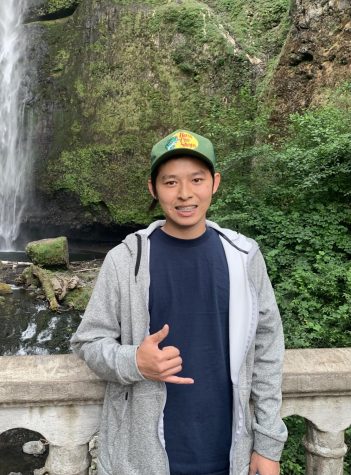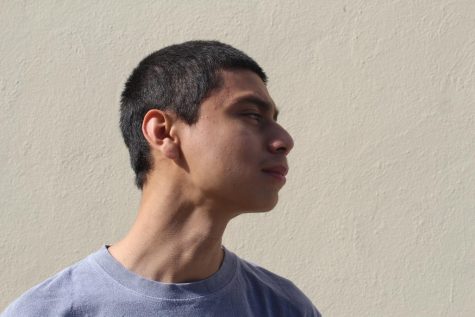More affordable housing in Chico is on the way. The Chico Housing Action Team was granted nearly $300,000 to lease a property for non-congregate housing on Feb. 2. The grant will also benefit low-income and displaced students because Chico State Basic Needs has partnered with CHAT to help find affordable housing.
CHAT Executive Director Leslie Johnson said on Feb. 2 they hope to promptly purchase the Town House Motel. “It has about 30 rooms,” Johnson said. “The Torres Center currently booked 10 rooms for six more weeks, however 20 rooms are still available. After that period of time the rooms will be available to us.”
Co-Founder Robert Trausch said CHAT intends to use the Town House Motel for transitional housing while also constructing an additional 60 units for permanent housing.
The original CHAT grant listed on the agenda was $250,000 of the city’s general fund. Council member Sean Morgan suggested the council members consider using the Community’s Development Block Grant Coronavirus Fund to prevent the spread of COVID-19 in the homeless and transient population by using it to purchase non-congregate housing.
“As a community we are faced with a sheltering and housing crisis that only serves to exacerbate the public health crisis we’re facing with the pandemic,” City of Chico Homeless Solution Coordinator Suzi Kochems said. “It is my job to offer options for the council to consider, these options must provide our most vulnerable population with safe places to sleep to protect our entire community.”
Kochems said these potential options (Section 5.2) will help fulfill the city’s desire of living in a beautiful community that is safe and clean. There was a 6-1 to authorize council decision in authorizing the usage of the CDBG-CV funds for the purchase of a permanent non-congregate housing spot. Morgan said he is supportive of CHAT because of its promising results and humble approach.
Chico State Basic Needs Administrator Joe Picard said the grant doesn’t affect how Chico Basic Needs operates since its funding comes from a rapid rehousing grant, however both programs are related in their service to students.
Congregate housing is when individuals have their own rooms but share a bathroom and other facilities with others. Non-congregate housing gives people more privacy, freedom and private space.
CHAT has five housing programs: Housing Now, HUSH, CHAMP, Redwood Housing and Everhart Village. They have almost 60 locations throughout Chico that cater to displaced families and individuals.
“CHAT has 11 employees and 44 volunteers who share the same commitment and dedication of making Chico a better place while helping all citizens,” Trausch said.
Housing Now is the most popular program among the five.
- It rents properties, rooms and entire homes to low-income individuals for low rates. Complimentary maintenance is done daily. Supportive services like financial advising and counseling are available for participants.
Hand Up Supportive Housing helps homeless and transient families find subsidized housing for rent.
- This program caters to families with minor children. Families are chosen by their ranking on Coordinated Entry List, which is ranked by the government’s vulnerability index. People can call 211 to find out their ranking by answering some background questions.
Camp Fire Housing Access Model Program caters to people who lost their homes in the 2018 Camp Fire.
- This program provides property owners incentives to house fire survivors.
Redwood Housing is partnered with Chico State.
- It purchases large properties and rents them out at low rates for displaced and low-income students who need affordable housing.
Everhart Village is a new program that’s set to debut this year.
- CHAT partnered with the County of Butte Departments of Employment, Social Services and Behavioral Health to assist low-income individuals in their everyday life. This program will only cater to individuals with referrals from the County’s Behavioral Health Department.
Melvin Bui can be reached at orionmanagingeditor@gmail.com or @Melvinbuii on Twitter.










Richard Llamas // Feb 17, 2021 at 1:51 am
That would be great news in any community. However, what criterion will be determined who is and who is NOT.qualified to be accepted into the programs. For instance, would refugees from natural disasters or displaced due to fire, flood etc who are homeless due to circumstances not of their own accord. As apposed to chronic homeless who are out on the street due to drug addiction, committing of violent crimes or convicted felon who caNOT stay out of prison or jail? What about the environmental impact on certain areas of the community if and when these large capacity units are built? There is strength in numbers, crime is no different, the community should be very cautious as to building apartment communities that allow for many units 40-100 units on a campus makes a huge logistics problem. Just policing it alone, as well as allowing certain parties or individuals to lay claim, just like a prison gang or other click to set forth and enforce their own set if rules mainly for their benefit legal or NOT legal while harassing others who will NOT bow or conform to a factions “community” standard while violating other peaceful residence who mind their own business and refrain from mob discrimination by other tenants who want their own ways or are intolerant of others, or more to the point groups who are engaging in illegal activities in order to foster their own self interests! That as we have seen winds up creating a bigger problem and headache as well as bloodshed than the homeless issue!